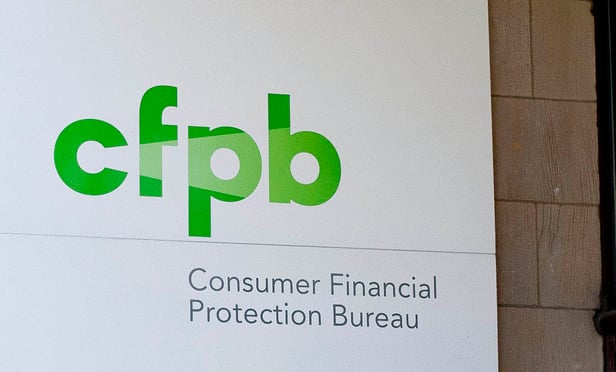 Consumer Financial Protection Bureau building in Washington, D.C. Photo by Diego M. Radzinschi
Consumer Financial Protection Bureau building in Washington, D.C. Photo by Diego M. Radzinschi
Credit unions are increasingly burdened by the reporting requirements of the Home Mortgage Disclosure Act even though there is no evidence of discrimination by those institutions, credit union trade groups have told the CFPB.
"It is increasingly difficult for credit unions to effectively participate in the mortgage lending market when they are forced to comply with rules not tailored to their size or structure," Alexander Monterrubio CUNA's senior director of advocacy and counsel told the agency.
Recommended For You
"The Bureau should also consider whether credit unions, who have not engaged in egregious redlining practices, should be afforded relief commensurate with their good conduct and reputation as trusted lenders in their communities," Andrew Morris, NAFCU's senior counsel for research and policy told the CFPB.
However, 63 House Democrats and 18 Democratic senators have said they are alarmed by the CFPB's plan to loosen some of the law's reporting requirements.
"This cannot be overstated: recent data has made clear that discrimination in lending continues to be a major problem, with conduct such as redlining continuing to be pervasive in too many communities across the country," the 63 Democrats, led by House Financial Services Chairman Maxine Waters (D-Calif.) wrote in a letter to the agency.
In a notice of proposed rulemaking, the CFPB said it is soliciting comment on a plan that would increase the threshold for closed-end mortgages. For those loans, the plan would permanently increase the threshold from 25 to either 50 or 100 closed-end mortgages.
For open-end lines of credit, the proposal would extend for another two years the current temporary coverage threshold of 500 open-end lines of credit. Once that temporary coverage expires, the plan would set the open-end threshold at 200 open lines of credit.
The advance notice of proposed rulemaking seeks comments about the costs and benefits of data points the agency added in 2015.
CUNA called on the agency to increase the closed-end mortgage loan threshold to 500 loans in each of the prior two years.
If that is not possible, the trade group said the CFPB should" finalize the proposed 100 loan threshold at a minimum to exempt credit unions with small mortgage lending portfolios from HMDA reporting."
That would assist 750 credit unions, according to Monterrubio.
He added, however, if the CFPB decreased its reporting threshold from 500 to 200 lines after 2022, almost nearly 200 credit unions could lose their reporting exemption.
Morris said that the CFPB should increase the closed-end threshold to 500 mortgage loans in each of the two preceding years.
"Reporting open-end lines of credit will always introduce challenges for credit unions that conduct originations across separate systems, particularly those that are small and have strained compliance resources," he wrote.
However, the Democratic senators accused the agency of ignoring the law's purpose and said the rule would, if adopted, curtail access to critical lending data.
"Smaller lenders are valuable sources of mortgage credit for their communities, particularly in rural areas. The CFPB should recognize them as such when gathering data to understand local markets," they wrote.
And they concluded, "We are extremely concerned that the Consumer Financial Protection Bureau has once again put the interests the financial industry above those of the consumers it is charged to protect."
© Touchpoint Markets, All Rights Reserved. Request academic re-use from www.copyright.com. All other uses, submit a request to [email protected]. For more inforrmation visit Asset & Logo Licensing.






